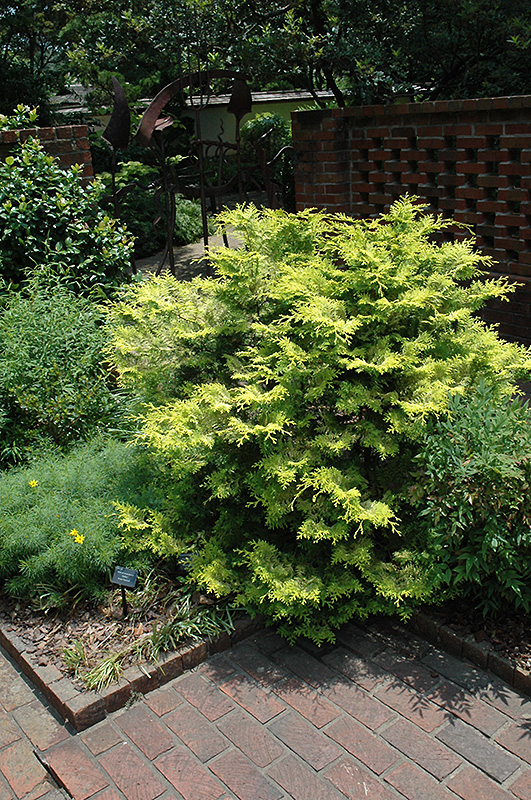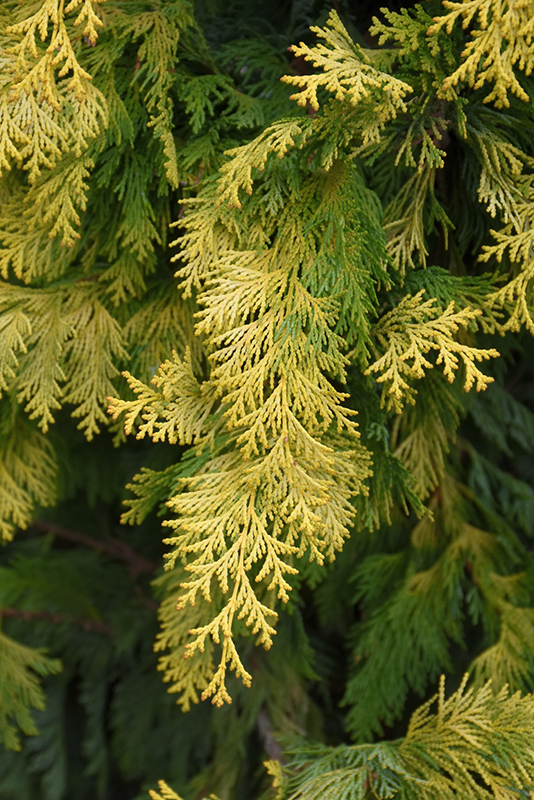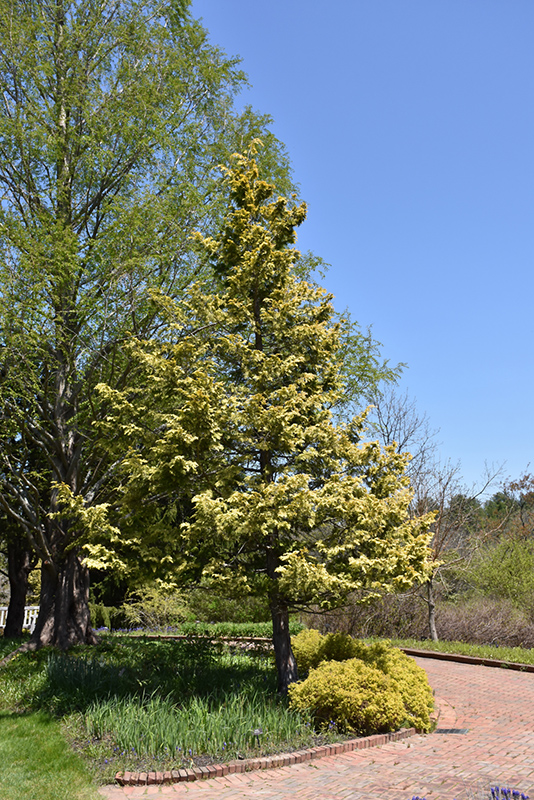Plant Search & Info
Cripps Gold Falsecypress Chamaecyparis obtusa 'Crippsii' Height: 30 feet Spread: 25 feet
Sunlight:
Hardiness Zone: 6a Description: Similar to the species but more compact with attractive golden foliage all season long, broadly pyramidal with interesting reddish bark, almost fibrous Ornamental Features Cripps Gold Falsecypress is primarily valued in the landscape for its distinctively pyramidal habit of growth. It has attractive yellow evergreen foliage which emerges gold in spring. The scale-like sprays of foliage are highly ornamental and remain yellow throughout the winter. Landscape Attributes Cripps Gold Falsecypress is a multi-stemmed evergreen tree with a distinctive and refined pyramidal form. Its relatively fine texture sets it apart from other landscape plants with less refined foliage. This is a relatively low maintenance tree. When pruning is necessary, it is recommended to only trim back the new growth of the current season, other than to remove any dieback. It has no significant negative characteristics. Cripps Gold Falsecypress is recommended for the following landscape applications; Planting & Growing Cripps Gold Falsecypress will grow to be about 30 feet tall at maturity, with a spread of 25 feet. It has a low canopy, and should not be planted underneath power lines. It grows at a medium rate, and under ideal conditions can be expected to live for 70 years or more. This tree does best in full sun to partial shade. It prefers to grow in average to moist conditions, and shouldn't be allowed to dry out. It is not particular as to soil type or pH. It is highly tolerant of urban pollution and will even thrive in inner city environments, and will benefit from being planted in a relatively sheltered location. Consider applying a thick mulch around the root zone in winter to protect it in exposed locations or colder microclimates. This is a selected variety of a species not originally from North America.![]()
![]()
![]()
![]()
![]()
![]()
![]()
![]()
![]()
![]()
![]()
![]()




